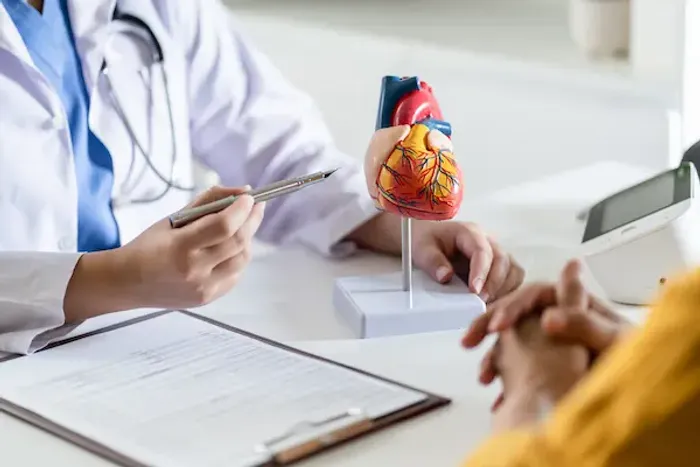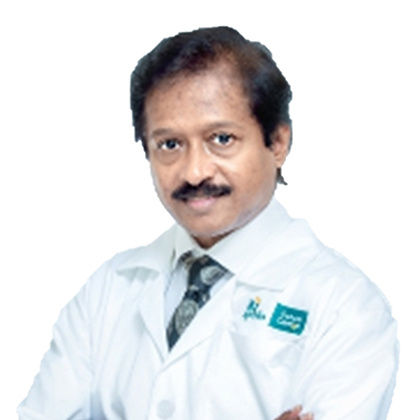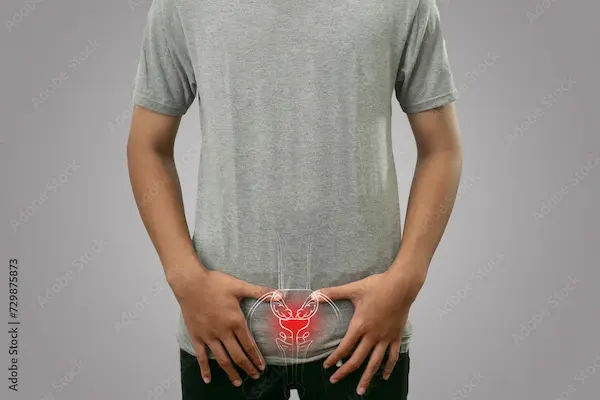Guide to Category/cardiology
Your essential guide to Cardiology explains common heart conditions, diagnostic tests, and proven treatments. Learn everyday tips for heart health, when to seek care for symptoms, and how to protect your cardiovascular system at any age.


Introduction
Heart health can feel complicated—but it doesn’t have to be. This plain-English guide to cardiology explains what cardiology is, the most common heart problems, the tests doctors use, treatments that work, and what you can do today to protect your heart. Whether you’re curious about symptoms, preparing for a first visit, or comparing lifestyle tips, this cardiology guide is designed for everyday readers who want trustworthy, practical advice. You’ll find easy explanations, evidence-based tips, and real-world examples—plus quick checklists you can use right away. We also highlight when it’s time to seek medical care and how to make the most of telemedicine and home testing if that’s more convenient for you. By the end, you’ll understand the essentials of cardiology and feel confident taking the next step for your heart.
What Is Cardiology?
This speciality is focused on the heart and blood vessels—how they work, what can go wrong, and how to prevent and
treat disease.
Cardiology is the medical speciality focused on the heart and blood vessels—how they work, what can go wrong, and
how to prevent and treat disease. In everyday terms, cardiology covers problems like high blood pressure, clogged
arteries, irregular heartbeats, heart failure, and valve issues. Cardiologists are the doctors trained to evaluate cardiology
symptoms and diagnose, from chest discomfort and breathlessness to swelling in the legs or fainting spells.
Consult Top Cardiologists for Personalised Advice
Subspecialties in Cardiology
- Interventional cardiology: Minimally invasive procedures (angioplasty, stents).
- Electrophysiology: Electrical problems like atrial fibrillation; pacemakers/ablations.
- Heart failure and transplantation: Managing weak heart muscle and advanced therapies.
- Imaging: Echocardiography, cardiac MRI/CT to see heart structure and function.
- Preventive cardiology: Risk assessment and lifestyle/medication plans to prevent events.
Why this matters: Cardiovascular disease is the world’s leading cause of death—about 17.9 million deaths annually,
with many preventable through early detection and lifestyle changes. Knowing the basics of cardiology helps you
recognise warning signs, get the right tests, and act sooner.
Unique Insight: Your “cardiology life story” starts early. Risk factors like family history, elevated LDL cholesterol,
blood pressure, and even pregnancy complications (like preeclampsia) can set a trajectory decades before symptoms
appear. Capture these in a simple list you update yearly—your personal heart profile.
Top Heart Conditions in Everyday Life
Most people seek guidance on the five most common cardiovascular issues: coronary artery disease, hypertension,
arrhythmias, heart failure, and valve disease.
Most people who search for cardiology want to understand the big five:
- Coronary artery disease (CAD): Plaque narrows heart arteries, causing angina (chest pressure) or heart attacks. Risk
rises with high LDL cholesterol, smoking, diabetes, and age. - Hypertension (high blood pressure): Often silent. Over time, it thickens and stiffens arteries, straining the heart and
kidneys. - Arrhythmias: Irregular rhythms such as atrial fibrillation (AF). Symptoms include palpitations, fatigue, and dizziness;
AF increases stroke risk. - Heart failure: The heart doesn’t pump enough blood. Look for breathlessness, leg swelling, and rapid weight gain.
- Valve disease: Valves can narrow (stenosis) or leak (regurgitation), causing fatigue, breathlessness, or murmurs.
Real-World Examples
A 52-year-old with “indigestion” on walks turns out to have CAD after a stress test shows reduced blood flow. A stent
opens the artery, and cardiac rehab plus statin therapy reduce future risk. Another: a 68-year-old feeling “winded” is
found to have heart failure; adding SGLT2 inhibitors and salt restriction improves stamina within weeks.
A helpful perspective: Think of your heart risks in layers: unavoidable (age, genes), modifiable (LDL, BP, smoking),
and behavioural (sleep, stress, activity, diet). Tackle what you can—and track progress. If symptoms persist beyond two
weeks or worsen, consult a doctor online with Apollo 24|7 for further evaluation.
Symptoms You Shouldn’t Ignore
Certain symptoms require immediate medical attention, as heart issues can present subtly, especially in women.
Heart symptoms can be subtle. Seek medical attention urgently for:
- Chest pressure, squeezing, or pain (especially with exertion), spreading to the arm/jaw.
- Shortness of breath at rest or with minimal activity.
- Fainting or near-fainting, especially during exercise.
- Fast, irregular heartbeats with dizziness or chest discomfort.
- Sudden swelling in legs/feet or rapid weight gain over a few days.
- Women’s heart attack symptoms can be atypical—fatigue, nausea, back pain, shortness of breath—without classic chest
pain.
When to Seek Care
- Call emergency services immediately for persistent chest pain (more than 5–10 minutes), signs of a stroke (face droop,
arm weakness, speech trouble), or severe breathlessness. - Book urgent care within 24–48 hours for new palpitations, mild chest discomfort with activity, or ankle swelling.
- Routine appointment if you notice gradual changes like reduced exercise tolerance or rising home blood pressures.
Unique Insight: Keep a “symptom snapshot.” Note what you were doing, how long symptoms lasted, what made them better/worse, and add phone photos of any swelling. This detail speeds up cardiology symptoms and diagnosis
decisions. If your condition does not improve after trying these methods, book a physical visit to a doctor with Apollo
24|7.
How Heart Problems Are Diagnosed
Diagnosis combines a detailed patient history and physical examination with specific non-invasive and invasive heart
tests.
Diagnosis starts with history and exam—your story matters as much as the test results. Expect questions about family
history, lifestyle, medications, and prior events (like preeclampsia or gestational diabetes). Your doctor will check blood
pressure targets by age, heart sounds, and signs of fluid overload.
Common Heart Tests
- ECG (electrocardiogram): Records electrical activity; quick and painless.
- Echocardiogram (Echo): Ultrasound images show structure, valves, and pumping.
- Stress testing: Treadmill or medicine-based tests assess blood flow under stress.
- Holter/patch monitor: Worn for 1–14 days to catch intermittent arrhythmias.
- Blood tests: Lipid panel (LDL cholesterol), HbA1c for diabetes, and high-sensitivity troponin for suspected heart attack.
- Advanced imaging: CT coronary angiography or cardiac MRI to clarify anatomy; invasive angiography when
interventions are likely.
Case example: For chest discomfort with moderate risk, CT coronary angiography can non-invasively identify
significant plaque and guide therapy; for classic unstable symptoms, immediate ECG and troponin testing determine if
emergency treatment is needed.
Practical tip: Bring your home BP log and medication list. If lab tests are relevant, Apollo 24|7 offers convenient home
collection for tests like lipid profile, HbA1c, and thyroid function—useful when planning a cardiology visit.
Treatments: Lifestyle, Medicines, Procedures
Effective cardiac care uses a layered approach, combining daily habits, proven medications, and targeted medical
procedures.
Treatment plans in cardiology are layered:
Lifestyle (Best Diet for Heart Health)
- Diet: Mediterranean or DASH patterns lower blood pressure and LDL; aim for plenty of vegetables, fruits, legumes,
whole grains, nuts, olive oil; limit sodium to 1,500–2,300 mg/day. - Exercise: 150 minutes/week moderate activity plus 2 days of strength training; start small and build.
- Sleep and stress: 7–9 hours of sleep; manage stress with breathing, yoga, or walking.
- Tobacco/alcohol: Quit tobacco; keep alcohol low to none.
Medications
- LDL lowering: Statins are first-line; add ezetimibe or PCSK9 inhibitors when needed. Ask how to lower LDL
cholesterol naturally alongside medication—fibre and plant sterols can help, but don’t replace proven drugs. - Blood pressure: ACE inhibitors/ARBs, calcium channel blockers, thiazides; targets individualised but often $<$130/80
mmHg. - Diabetes and heart: SGLT2 inhibitors and GLP-1 receptor agonists reduce heart events and help in heart failure.
- Arrhythmias: Rate/rhythm drugs; anticoagulation for AF to prevent stroke.
Procedures
- Coronary angioplasty and stents for blocked arteries; coronary bypass for complex disease.
- Catheter ablation for symptomatic atrial fibrillation.
- Pacemakers/ICDs for dangerous slow or fast rhythms.
- Valve repair/replacement, including less invasive TAVR for aortic stenosis.
Unique Insight: Ask your doctor to label each therapy by “what it does” (symptom relief vs risk reduction). People stick
with plans better when they know which pill prevents a heart attack and which eases chest tightness.
Prevention at Any Age
Prevention is personal and requires knowing your numbers, adopting heart-healthy habits, and staying current with
vaccinations.
Prevention in cardiology is personal and starts now—whatever your age.
Your Prevention Checklist
- Measure: Know your numbers—BP, LDL cholesterol, HbA1c, waist circumference.
- Move: Build activity into daily life; step goals work if you dislike gyms.
- Eat: Follow a Mediterranean/DASH-style plan; cook more at home; read labels for sodium and trans fats.
- Don’t smoke or vape: Each quit attempt improves odds.
- Sleep: Treat sleep apnoea if you snore or feel unrefreshed.
- Vaccinations: Flu and COVID-19 shots reduce infection-triggered heart events, particularly in older adults and those
with heart disease.
Blood pressure targets by age vary by individual risk and tolerance, but many adults benefit from $<$130/80 mmHg,
especially with diabetes or chronic kidney disease. For cholesterol, lower LDL is generally better if you’re at high risk.
Unique Insight: Make prevention social. Share step goals with a friend, batch-cook heart-healthy meals, or set up a
family BP check once a month. Small, shared habits stick.
If you’re unsure how to start or you need personalised targets, consult a doctor online with Apollo 24|7 for a prevention
plan tailored to you.
Special Populations: Women, Men, Seniors
Cardiac risks and symptoms vary by population, requiring a tailored approach to diagnosis and prevention.
Women
- Symptoms can be subtle: fatigue, breathlessness, indigestion, or back pain during a heart attack.
- Pregnancy history matters: preeclampsia and gestational diabetes raise lifelong risk.
- Autoimmune diseases (lupus, rheumatoid arthritis) can increase risk.
Men
- Earlier onset of coronary disease on average; prioritise cholesterol checks in the 30s–40s if risk factors exist.
- Erectile dysfunction can be an early sign of vascular disease—discuss it openly.
Seniors
- Frailty and multiple medications complicate decisions; goals balance longevity and quality of life.
- Be alert to heart failure signs like leg swelling and night-time breathlessness.
- Light strength training improves independence and outcomes.
Unique Insight: Tie heart goals to “life stages”—preconception counselling for women with prior hypertensive
pregnancy, midlife cholesterol optimisation for men, fall-prevention with gentle exercise for seniors—so prevention feels
timely and relevant.
Emerging Trends in Cardiology
New technologies, powerful medications, and Artificial Intelligence are rapidly changing how heart disease is
monitored and treated.
Cardiology evolves fast. Three trends to know:
- Wearables and remote monitoring: Smartwatches can flag irregular rhythms; patch ECGs worn for 7–14 days detect
intermittent AF with high accuracy, improving diagnosis of unexplained palpitations. Wearable heart monitor accuracy
varies—medical-grade patches outperform consumer devices for diagnosis. - Powerful new medications: SGLT2 inhibitors and GLP-1 receptor agonists lower cardiovascular events in diabetes and
heart failure; PCSK9 inhibitors and inclisiran further reduce LDL in high-risk patients. - AI and imaging: Artificial intelligence can read ECGs and echocardiograms to flag subtle risk; CT angiography is
increasingly used to non-invasively map coronary plaque.
Telecardiology consultation online lets you review test results, adjust medications, and monitor BP from home—
especially useful for stable conditions. A forward-looking tip: keep digital copies of your ECG, echo, lipid results, and
BP log. Consistent data over time makes AI-assisted and human clinician decisions better.
Your First Cardiology Visit: What to Expect
Be prepared with your symptoms, medication list, and home monitoring data to make your initial consultation efficient
and effective.
A first cardiology visit is part conversation, part measurement.
Bring
- Symptom snapshot (timing, triggers, duration).
- Medication and supplement list.
- Home BP and pulse log, recent labs.
- Family history (heart disease, sudden death, high cholesterol).
During the Visit
- History and exam, blood pressure measurement, ECG if indicated.
- Discussion of likely diagnoses and a plan for tests (e.g., echocardiogram).
- Clear goals: symptom relief, risk reduction, and follow-up timing.
Costs and Practical Tips
- Ask which tests are essential now versus can wait.
- Verify if a stress test could be exercise-based (often less expensive) or needs imaging.
- Telemedicine can handle medication checks and lifestyle coaching; in-person visits are best for exams and procedures. If
you need quick guidance on test choices or second opinions, consider an online consult via Apollo 24|7.
Unique Insight: Ask for a one-page summary at the end of the visit—diagnoses, next steps, and targets (LDL goal, BP
range). It becomes your north star.
At-Home Monitoring and When to Seek Care
Consistent home monitoring of blood pressure and weight helps manage chronic conditions and flag early warning
signs.
You can support cardiology care at home:
- Blood pressure cuff: Choose an upper-arm automatic device; measure at the same times daily; average 3 readings, 1
minute apart. - Fitness trackers: Helpful for activity goals and resting heart rate trends.
- Pulse oximeter: Useful during respiratory illness if you have heart/lung disease.
- Smart scales: Track weight for heart failure; a 1–2 kg increase in days may signal fluid retention.
Red Flags
- Home BP consistently above your target (e.g., 135/85 mmHg or higher) despite correct technique.
- Resting heart rate persistently $>$100 or sudden drops below 50 with symptoms.
- Rapid weight gain, new ankle swelling, or breathlessness.
Labs from home: Lipids, HbA1c, thyroid, and kidney tests guide heart care. Apollo 24|7 offers home collection,
making it easier to stay on top of routine monitoring. If symptoms persist beyond two weeks or you see worrying trends, consult a doctor online with Apollo 24|7 for further evaluation.
Unique Insight: Calibrate your devices. Bring your cuff to a clinic visit once to compare readings with a professional
device—then you’ll trust your numbers.
Nutrition for Heart Health
Food choices are a cornerstone of heart health, focusing on plant-based foods, healthy fats, and low-sodium intake.
Food choices are a cornerstone of cardiology.
- Build your plate around plants: vegetables, fruits, legumes, whole grains, nuts, seeds.
- Healthy fats: Extra-virgin olive oil, nuts, and fatty fish (salmon, sardines) for omega-3s.
- Lean proteins: Fish, skinless poultry, tofu, beans.
- Sodium savvy: Target 1,500–2,300 mg/day; rinse canned beans, choose low-sodium sauces.
- Sugar and refined grains: Minimise sweets and white breads; choose oats, brown rice, quinoa.
Label reading: Check serving size, sodium, saturated fat, and added sugars. Aim for 25–35 g/day of fibre—great for
LDL reduction. Supplements? Fish oil may help if you don’t eat fish, but prioritise whole foods. CoQ10 might ease
statin muscle symptoms for some, but ask your doctor before starting.
Unique Insight: Cook “default healthy.” Keep a go-to pantry (olive oil, oats, canned beans, frozen vegetables, spices).
When healthy food is one step away, it wins more often.
Kids and Young Hearts
Paediatric cardiology focuses on congenital and acquired heart issues, emphasising early prevention through healthy
habits.
Paediatric cardiology covers congenital (born-with) and acquired issues:
- Congenital heart disease: Holes between chambers (ASD/VSD), valve problems; many are treatable with surgery or
catheter-based techniques. - Athletic screening: Young athletes with chest pain, fainting, or concerning family history need evaluation before return
to play. - Infections and inflammation: Conditions like Kawasaki disease or rare post-viral myocarditis require prompt care.
Paediatric cardiology basics: Healthy habits start early—limit sugary drinks, encourage daily play, ensure routine checkups, and discuss family history. A unique insight: measuring blood pressure in childhood, especially with family
risk, sets a prevention mindset that pays off decades later.
Myths vs Facts in Cardiology
Evidence-based facts should guide your heart health decisions, not common misconceptions.
- Myth: “No chest pain means no heart problem.” Fact: Breathlessness, fatigue, or back pain can signal heart issues,
especially in women. - Myth: “A normal cholesterol once means I’m safe.” Fact: Cholesterol changes with age, weight, and diet; recheck every
4–6 years or more often if at risk. - Myth: “Supplements can replace statins.” Fact: No supplement matches statins’ proven risk reduction for heart attacks and strokes.
- Myth: “I’m too old to benefit from exercise.” Fact: Even light activity improves blood pressure, mood, and
independence at any age.
Unique Insight: Treat advice like medicine: check the source, the dose, and the evidence. Cardiology thrives on data—
so should your decisions.
Conclusion
Heart health doesn’t require perfection—just consistent, informed action. By understanding the basics of cardiology, recognising symptoms early, and focusing on proven prevention (food, movement, sleep, and not smoking), you can dramatically lower your risk of heart attack, stroke, and heart failure. When problems do arise, today’s tools—from accurate home monitors and convenient labs to powerful medications and minimally invasive procedures—make diagnosis and treatment more effective than ever. Partner with a cardiology team you trust, set clear goals for your LDL and blood pressure, and check progress regularly. If you’re experiencing symptoms or want a personalised prevention plan, consult a doctor online with Apollo 24|7 or schedule an in-person visit. The best time to start caring for your heart is today; the next best time is your very next step.
Consult Top Cardiologists for Personalised Advice
Consult Top Cardiologists for Personalised Advice

Dr. Zulkarnain
General Physician
2 Years • MBBS, PGDM, FFM
Bengaluru
PRESTIGE SHANTHINIKETAN - SOCIETY CLINIC, Bengaluru

Dr. Tripti Deb
Cardiologist
40 Years • MBBS, MD, DM, FACC, FESC
Hyderabad
Apollo Hospitals Jubilee Hills, Hyderabad

Dr. E Prabhakar Sastry
General Physician/ Internal Medicine Specialist
40 Years • MD(Internal Medicine)
Manikonda Jagir
Apollo Clinic, Manikonda, Manikonda Jagir
(150+ Patients)
Dr. Diganta Buragohain
Cardiologist
1 Years • "DM (Cardiology) in 2025 from NEIGRIHMS, Shillong MD (General Medicine) in 2020 Gauhati Medical College, MBBS in 2015 from Gauhati Medical College,"
Guwahati
Apollo Excelcare Hospital, Guwahati

Dr. Rakesh Gopal
Cardiologist
22 Years • “ Trained in Trans Aortic Valve Implantation ( TAVI ) from Mehmet Akif Ersoy Hospital Istanbul, Turkey “ & MD (General Medicine), FRCP (Glasglow)DNB( Cardiology), FESC, HICR Cert (Harvard University, USA), Angioplasty Training from Washington Adventist Hospital USA, Asan Medical Centre, Seoul Korea, Board certified in Cardio Oncology, ICOS- USA
Chennai
Apollo Hospitals Heart Centre Thousand Lights, Chennai
(100+ Patients)
Consult Top Cardiologists for Personalised Advice

Dr. Zulkarnain
General Physician
2 Years • MBBS, PGDM, FFM
Bengaluru
PRESTIGE SHANTHINIKETAN - SOCIETY CLINIC, Bengaluru

Dr. Tripti Deb
Cardiologist
40 Years • MBBS, MD, DM, FACC, FESC
Hyderabad
Apollo Hospitals Jubilee Hills, Hyderabad

Dr. E Prabhakar Sastry
General Physician/ Internal Medicine Specialist
40 Years • MD(Internal Medicine)
Manikonda Jagir
Apollo Clinic, Manikonda, Manikonda Jagir
(150+ Patients)
Dr. Diganta Buragohain
Cardiologist
1 Years • "DM (Cardiology) in 2025 from NEIGRIHMS, Shillong MD (General Medicine) in 2020 Gauhati Medical College, MBBS in 2015 from Gauhati Medical College,"
Guwahati
Apollo Excelcare Hospital, Guwahati

Dr. Rakesh Gopal
Cardiologist
22 Years • “ Trained in Trans Aortic Valve Implantation ( TAVI ) from Mehmet Akif Ersoy Hospital Istanbul, Turkey “ & MD (General Medicine), FRCP (Glasglow)DNB( Cardiology), FESC, HICR Cert (Harvard University, USA), Angioplasty Training from Washington Adventist Hospital USA, Asan Medical Centre, Seoul Korea, Board certified in Cardio Oncology, ICOS- USA
Chennai
Apollo Hospitals Heart Centre Thousand Lights, Chennai
(100+ Patients)
More articles from General Medical Consultation
Frequently Asked Questions
1. What’s the difference between a cardiologist and a cardiac surgeon?
A cardiologist diagnoses and treats heart conditions with medicines and non-surgical procedures; a cardiac surgeon performs operations like bypass or valve surgery. Both may be part of your cardiology care team.
2. When should I see a cardiologist for chest pain?
If chest pain lasts more than 5–10 minutes, call emergency services. For recurring discomfort with exertion or concern about risk, book an appointment; a cardiologist can perform heart tests explained in this guide.
3. Can I lower LDL cholesterol naturally?
Dietary fibre, plant sterols, weight loss, and exercise help. However, if your risk is high, medications like statins offer proven protection. Ask how to lower LDL cholesterol naturally alongside your medication plan.
4. Are wearable heart monitors accurate?
Consumer wearables reliably track activity and sometimes detect irregular rhythms, but medical-grade patches are more accurate for diagnosis. Discuss wearable heart monitors with your clinician.
5. What blood pressure is considered good for most adults?
Many benefit from $<$130/80 mmHg, individualised by age and overall risk. Keep a home log; if numbers remain high, consult a doctor online with Apollo 24|7 for adjustment.




